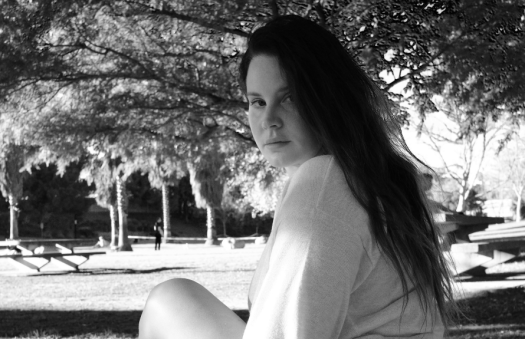Adrianne Lenker's brilliantly gleaming latest solo effort, Bright Future, was one of the best albums of 2024 — and apparently she did it all without using headphones or playback.
The Big Thief frontwoman appeared on the latest episode of Hrishikesh Hirway's Song Exploder podcast alongside co-producer Phil Weinrobe to break down the making of standout track "Sadness as a Gift," where she reflected back on recording the album at Double Infinity, an analogue studio in the woods.
"I wanted to feel what it would be like to be responding in real time to other people playing parlour instruments ... There's something incredibly exciting to me about the alchemy and the power that can be produced and created with just these raw instruments together in a room, without the need for headphones," Lenker explained.
"Phil and I first were just the two of us for like a week, and then everyone showed up," she continued, referring to pianist Nick Hakim, violinist Josefin Runsteen and guitarist Mat Davidson. "We didn't use headphones — I was just sitting in the room with my acoustic guitar — and then once everyone else showed up, it just kind of carried over. Even further than not wearing headphones, we didn't even listen back to a single thing that we did. At all. Like, everyone left and hadn't heard a single recording we had made. And no one even asked!"
When Hirway asked what the benefit of this unusual choice was, Weinrobe answered, "Trusting yourself," and Lenker concurred.
"It's almost like getting ready to go out the door without looking in a mirror. There is an inclination, or a strong pull, to check yourself all the time," the singer-songwriter said. "Like, 'What do we sound like? Does this sound good? Do we need to change or alter anything? Do we need to move this piece of hair to the right of that eyebrow?'"
She went on, "But I feel like actually working in a way where you just go based off of how it feels to play in the room and — 'Oh, I know that take two was good because I felt so much when we were playing it that time. And like, I know that the take after that was good because I got chills during that one, and I cried on take four, so man, I know we got it in there somewhere.' I don't even have to hear it back, because I know I enjoyed that moment of playing music in the room, and I gotta trust that that's as real of a gauge as any gauge could be."
"The problem with playback is that you must be a critic during playback; you must analyze," Weinrobe added. "And as soon as you flip roles and become an analyzer and a critic, you've lost whatever performer position you're in and to me, that's the real tragedy of playback — we do all this work to get into a zone to perform and then playback just kind of like, knocks you off that very, very tender and beautiful balancing position that you've gotten in."
Things inevitably get very philosophical and sensual in delving into the process of making a song like "Sadness as a Gift." Listen below.




